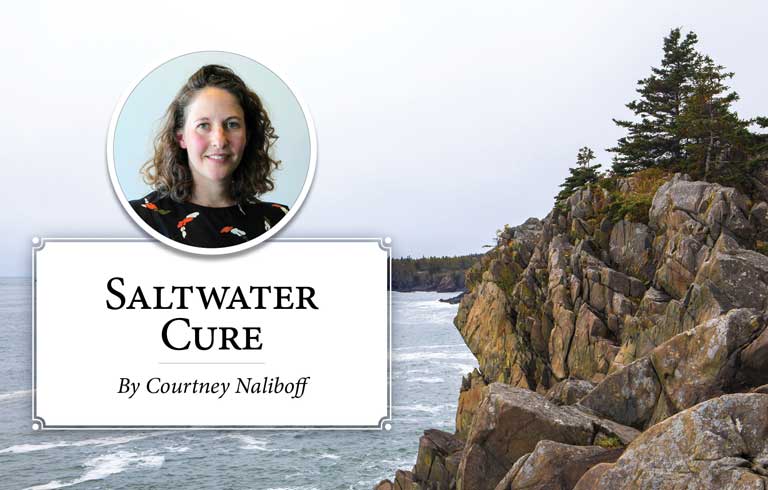When we went to bed on Saturday night, the only thing on our minds was the leak between the addition and the original part of the house. The northeast wind and driving rain had forced a little trickle of water through the part of the house that had yet to be re-shingled, and we placed a few stainless-steel bowls in the doorway to protect the newly laid maple floor.
When Bill woke up early the next morning, the bowls barely held an inch of water each, so his mind was briefly set at ease. When he opened the door to the basement to perform his daily cleaning of the cat boxes, the real catastrophe revealed itself—litter boxes floated by like houseboats, bumping through the water-logged detritus of 16 years of collected tools, treasures, equipment, art, and instruments.
Nearly six inches of rain had fallen overnight. Basement floods of every variety were reported all over the island. Water came in through windows, through floors, through the outflow pipes of drains. Sump pumps and dehumidifiers valiantly soldiered on until they were overwhelmed and drowned.
The discovery that almost broke my heart was the zippered bag that contained my Haggadahs, menorahs, and the matzoh covering that came to me from my mother.
He woke me up and I stumbled out of bed, barely able to comprehend the quantity of water in our home. With water filling my galoshes I waded through a newly born lake, picking up anything I could find to put on the work benches in hope of salvation. We could see the high-water line on a cardboard box—at some point, while we were peacefully sleeping, the water had reached over a foot. We bailed for a minute in a futile bucket brigade, then contacted a neighbor who brought a sump pump.
The pets were safe, we were safe, the water didn’t enter the rest of the house. The items we dragged out onto the lawn to assess, maybe dry out, maybe reluctantly throw away, were mostly not those in day-to-day use.
Bill’s digital camera, his professional tool and artistic medium, was the most heartbreaking loss. My Farfisa mini-compact electric organ lives but will someday need a complete overhaul. Most of our instrument cases eventually dried out, but a full truck and trailer load of our former belongings went to the transfer station.
The discovery that almost broke my heart was the zippered bag that contained my Haggadahs, menorahs, and the matzoh covering that came to me from my mother. The bag had been completely submerged in water, and I unzipped it with dread.
The prayerbook covers were swollen, grey smearing off on my fingertips. The pages stuck together in a solid mass. I could gently pry the cover open, revealing my grandfather’s signature on the first page. I couldn’t call them a loss, not without trying to save them. I stood them up on a tarp-covered pile, cracking them open as best I could to invite air circulation.
As the flood waters rose in our basement, and most of the basements on North Haven and Vinalhaven, a disaster of another scale unfolded halfway across the globe. Death and displacement, terror and loss, irreconcilable ideological schisms, upwelled through a people and a place saturated with injustice, unable to absorb anything more.
After ten days of air-drying, the pages of the Haggadahs released from their soggy mass and could once more be thumbed through, ready for next spring’s Seder. That piece of my family’s history, perhaps the strongest artifact connecting me to thousands of years of ancestry, was safe.
We had lost so much, but we had lost nothing. How privileged were we, to weather catastrophe and come out unchanged.
Courtney Naliboff lives on North Haven where she teaches music, theater, and writing at North Haven Community School. She also performs in the band Bait Bag. She may be contacted at Courtney.Naliboff@gmail.com.





